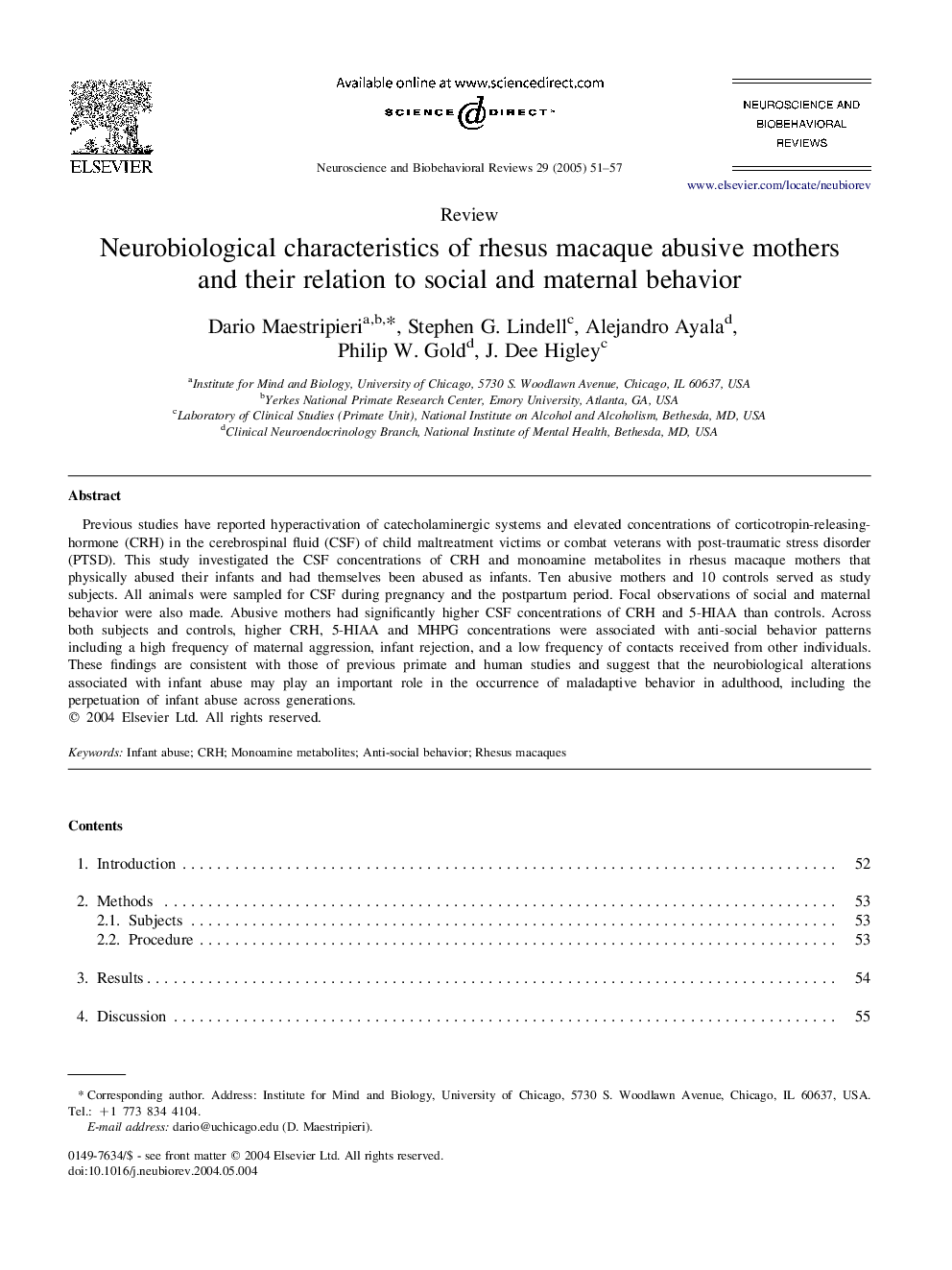| کد مقاله | کد نشریه | سال انتشار | مقاله انگلیسی | نسخه تمام متن |
|---|---|---|---|---|
| 10461875 | 924595 | 2005 | 7 صفحه PDF | دانلود رایگان |
عنوان انگلیسی مقاله ISI
Neurobiological characteristics of rhesus macaque abusive mothers and their relation to social and maternal behavior
دانلود مقاله + سفارش ترجمه
دانلود مقاله ISI انگلیسی
رایگان برای ایرانیان
کلمات کلیدی
موضوعات مرتبط
علوم زیستی و بیوفناوری
علم عصب شناسی
علوم اعصاب رفتاری
پیش نمایش صفحه اول مقاله

چکیده انگلیسی
Previous studies have reported hyperactivation of catecholaminergic systems and elevated concentrations of corticotropin-releasing-hormone (CRH) in the cerebrospinal fluid (CSF) of child maltreatment victims or combat veterans with post-traumatic stress disorder (PTSD). This study investigated the CSF concentrations of CRH and monoamine metabolites in rhesus macaque mothers that physically abused their infants and had themselves been abused as infants. Ten abusive mothers and 10 controls served as study subjects. All animals were sampled for CSF during pregnancy and the postpartum period. Focal observations of social and maternal behavior were also made. Abusive mothers had significantly higher CSF concentrations of CRH and 5-HIAA than controls. Across both subjects and controls, higher CRH, 5-HIAA and MHPG concentrations were associated with anti-social behavior patterns including a high frequency of maternal aggression, infant rejection, and a low frequency of contacts received from other individuals. These findings are consistent with those of previous primate and human studies and suggest that the neurobiological alterations associated with infant abuse may play an important role in the occurrence of maladaptive behavior in adulthood, including the perpetuation of infant abuse across generations.
ناشر
Database: Elsevier - ScienceDirect (ساینس دایرکت)
Journal: Neuroscience & Biobehavioral Reviews - Volume 29, Issue 1, February 2005, Pages 51-57
Journal: Neuroscience & Biobehavioral Reviews - Volume 29, Issue 1, February 2005, Pages 51-57
نویسندگان
Dario Maestripieri, Stephen G. Lindell, Alejandro Ayala, Philip W. Gold, J. Dee Higley,